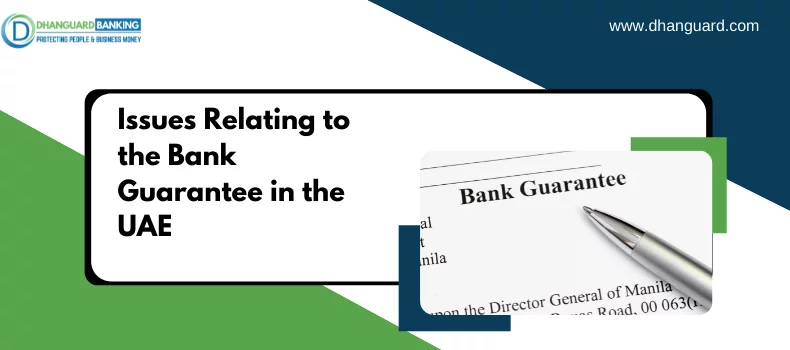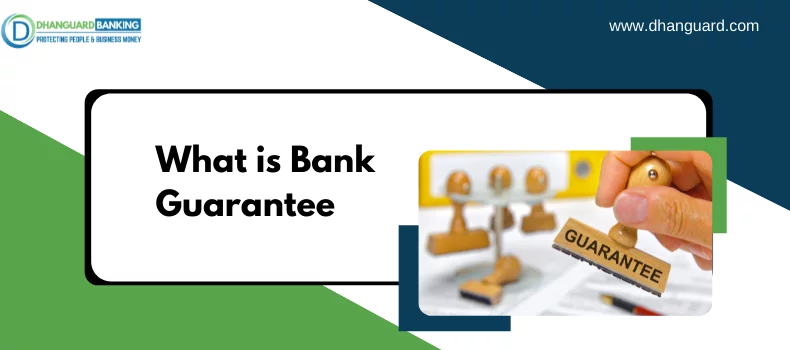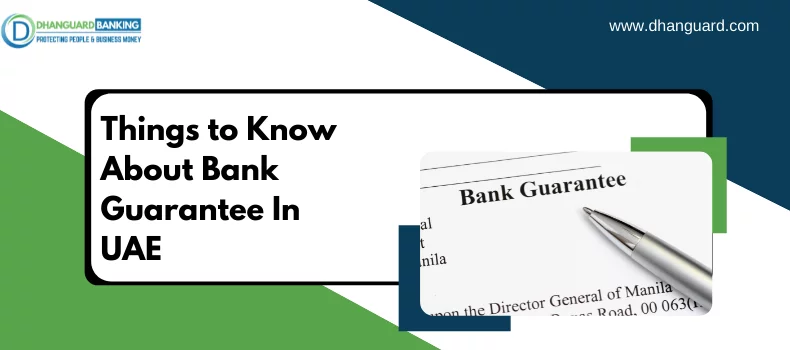Due to its commercial nature, the bank guarantee in the UAE is governed by Civil Transaction Law No 5 of 1985, regardless of the capacity of the party to whom such an instrument is issued or the reason for which it is issued. The concerned article by Dhanguard not only discusses the meaning of a guarantee cheque, but also the legal implications of such cheques when issued in the UAE.
Bank Guarantee
The issuance of a bank guarantee creates a separate and independent obligation for the bank issuing such instrument, as well as the guarantor and principal debtor. It is considered an independent liability issued by the guarantor to the creditor, also known as the beneficiary, by the principal debtor.
The issuance of any type of transaction or underlying contract between the beneficiary or the principal debtor will have no effect on the bank guarantee. Regardless of any understanding or contract between any of the three parties, namely the guarantor, the principal debtor, or the beneficiary, or regardless of the position of the principal debtor, the guarantor will be bound by the bank guarantee.
The guarantor is assumed to be a separate principal debtor from the actual principal debtor, and they are not each other's agents or representatives. Both the guarantor and the principal debtor incur joint and several liability, which is regarded as mutually exclusive of each other. This is thought to be the most significant distinction between a guarantee and a bank guarantee, because a guarantee, unlike a bank guarantee, creates incidental obligation.
Legality of a Bank Guarantee
The Bank Guarantee is governed by the CTL these are the following some reason for which it is granted.
Bank Guarantee Amount
A bank guarantee with no monetary value is not legal in the UAE. It is expressly stated that a bank guarantee must be of a certain amount.
Time Limit of Bank Guarantee
According to UAE law, the time limit is not a required component of the Bank Guarantee. However, if the time duration is present in the instrument, it will automatically expire when the time period expires. Also, under CTL article 418, the guarantor's obligation may be waived if the instrument is not renewed before the guarantee expires or the beneficiary does not make a payment request within the prescribed time. Furthermore, it is implied that if the time factor is not present, the general law of limitation will apply to the bank guarantee.
Instrumental Assignment
According to Article 416, the instrument is not valid in the hands of a third party if the beneficiary assigns it to the third party without the guarantor's prior consent. In addition to the requirement of consent, it is stipulated that such consent be in writing. Furthermore, the guarantor can grant such a right to the beneficiary at the time of signing the bank guarantee by making it a part of the guarantee. The principle of assigning the bank guarantee to a third party also entails that once the beneficiary has assigned the instrument to the third party, the third party becomes a new beneficiary and takes the place of the old ones. This means that the beneficiary will have to give up all rights and claims relating to the instrument to the third party, and the guarantor will be liable only to the third party and will have to fulfill their obligations to the third party upon their request.
Bank Guarantee Invocation
The beneficiary is the only party who can invoke the bank guarantee, and the bank is obligated to pay the beneficiary regardless of the principal debtor's default, act, or omission in this regard. This instrument is intended to be free of conditions, but if a condition exists that requires a beneficiary to act on the condition in a specific way or submit any documents to the bank, the bank will not fulfill the payment request until and unless such an act is performed or a submission is made to the bank. Such conditions are said to be mentioned in the bank guarantee itself, and it is the guarantor's responsibility to prove that such a condition is not met. The Court order is the only exception in which the bank can refuse to pay the beneficiary on the successful invocation of the instrument; otherwise, the bank is required to make all payments relating to the invocation.
Payment
When the bank guarantee is invoked, the guarantor must make all payments due under the guarantee within the time period specified in the guarantee. As a result, it is the responsibility of all three parties, namely the guarantor, the beneficiary, and the principal debtor, to establish a time limit for the guarantor to pay upon the beneficiary's request.
Injunction
There may be some exceptional cases where the court imposes an annexation on the bank guarantee amount with the guarantor. Article 416 states that only serious and exceptional grounds can elicit such an interim injunction against the guarantor on the principal debtor's appeal and are subject to the court's decision. The Court of Cessation upheld this provision in an appeal no. 247/2007, ruling that the court will not prevent the bank from paying the beneficiary at the request of the principal debtor unless there is a compelling and exceptional reason to do so on the part of the principal debtor.
Failure to make Payments
In the event that the guarantor fails to make the payment against the bank guarantee, the beneficiary may file an application in court against the guarantor. Furthermore, because the beneficiary and the guarantor have independent obligations, there is no need for the beneficiary to file a case against the principal debtor before filing a case against the guarantor.
Conclusion
Even if you don't have any established ties, use guarantees to conduct business with confidence. Dhanguard may be able to tackle your issues relating to the bank guarantees in UAE. Dhanguard offers consultancy on customized solutions such as performance, advance payment, tender, warranty, financial guarantees, and among other things, upon request.
DhanGuard: All-in-One Solution for Business Setup in Dubai, UAE
DhanGuard is your ultimate one-stop solution for all your business needs. Whether you’re planning to set up a new company or expand your existing business in the UAE, we’ve got you covered with our comprehensive range of services. From Company Formation in UAE and Business Bank Account in UAE services to managing your financial and legal compliance, we provide everything you need under one roof.
Our services include:
- Company Formation in UAE and Dubai
- Opening a Business Bank Account in UAE and Dubai with a 99% success rate
- VAT & Corporate Tax Compliance
- Accounting, Bookkeeping, and Auditing Services
- Trade License Renewal
- Golden Visa Assistance
Let DhanGuard make your journey of Business Setup in Dubai seamless and hassle-free!










